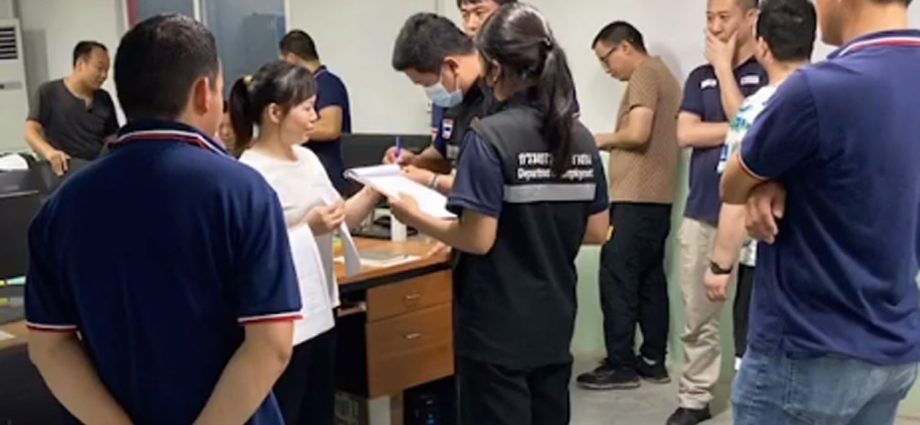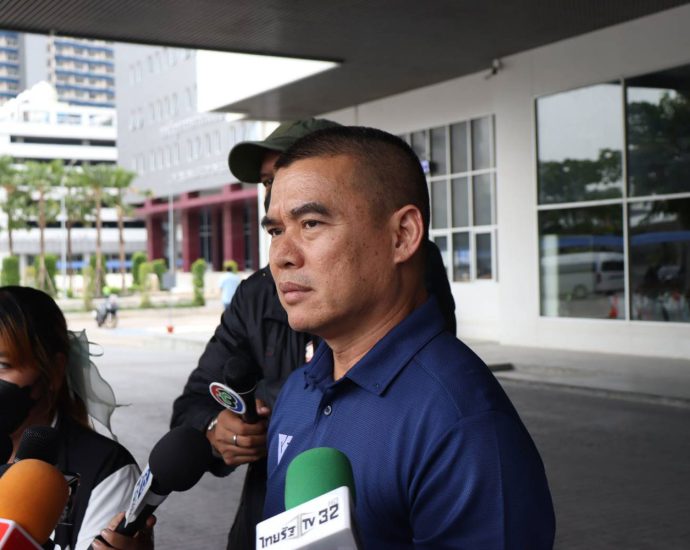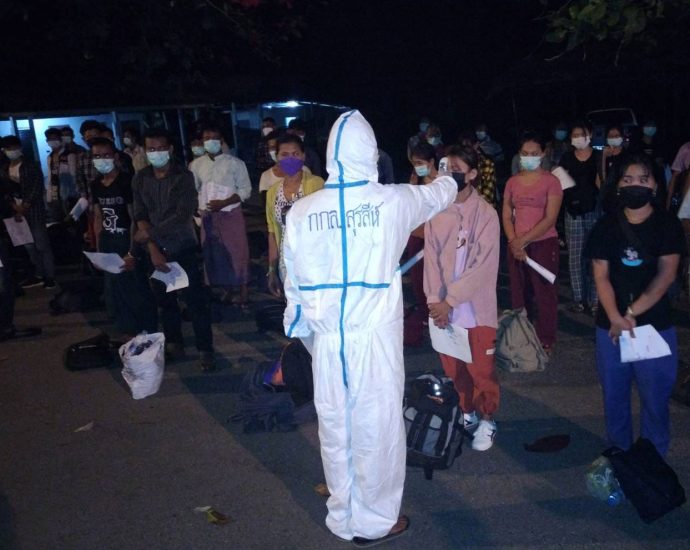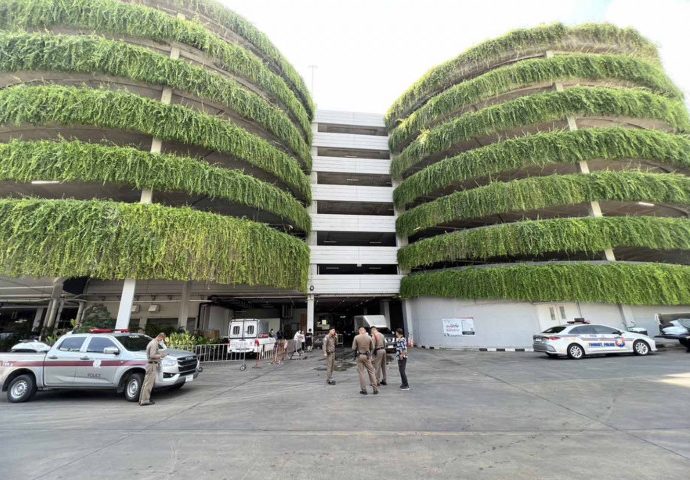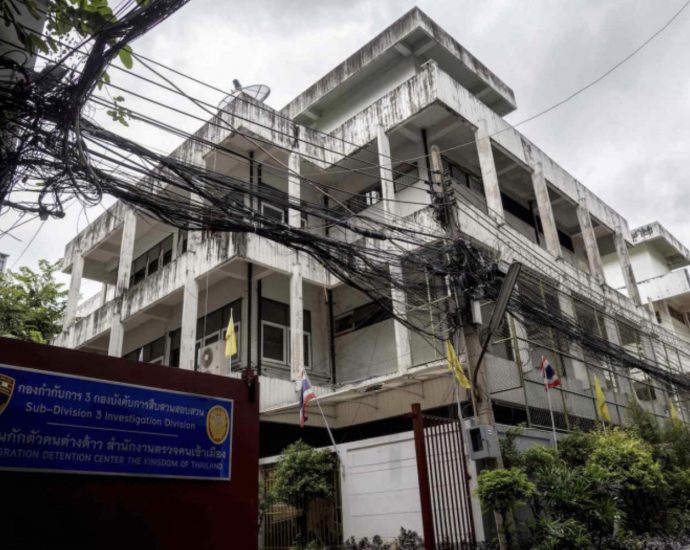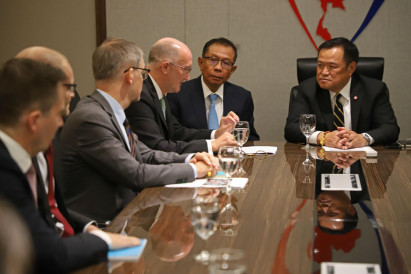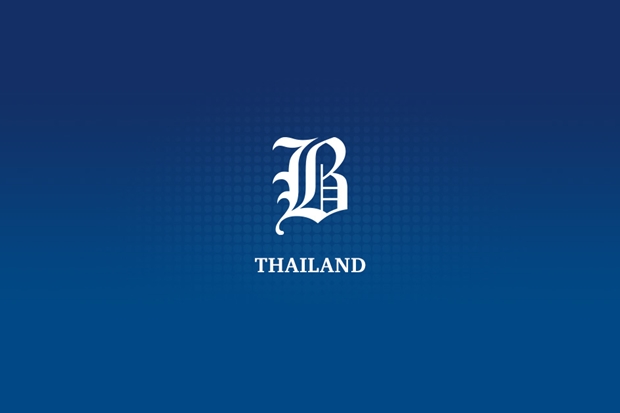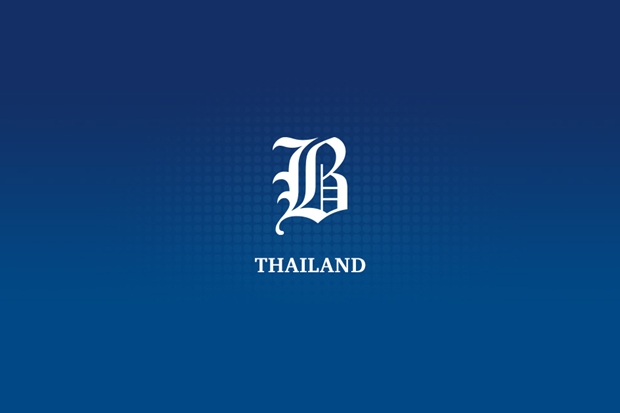Six Chinese tourists held for working illegally
Managers at Chon Buri factory had arrived in country on tourist visas but had no work permits

Six Chinese nationals who entered the country as tourists have been arrested for working illegally as factory managers during a raid in Ban Bung district of Chon Buri province.
Immigration police and officials from the Chon Buri provincial employment office visited a company in tambon Nong Phaikaew on Thursday after receiving information that some Chinese managers working there did not have the proper paperwork.
Six Chinese — five men and one woman — were found working in an office of Lihua Environmental Technology Co. The firm manufactures paper boxes for mobile phones, security cameras and electronic goods.
When asked to present passports and work permits, the six had no work permits. They had entered the country with tourist visas. All were working as managers such as production manager and maintenance manager, said the arresting team.
Before the officers entered the compound, the factory closed its gate and outsiders were not allowed in. Staff reportedly delayed opening the gate for police. This gave the Chinese time to jump over the wall in an attempt to escape, but they were caught shortly afterward.
The six tourists, aged 35-47, were handed over to police at the Ban Bung police station on charges of working without proper permission.

